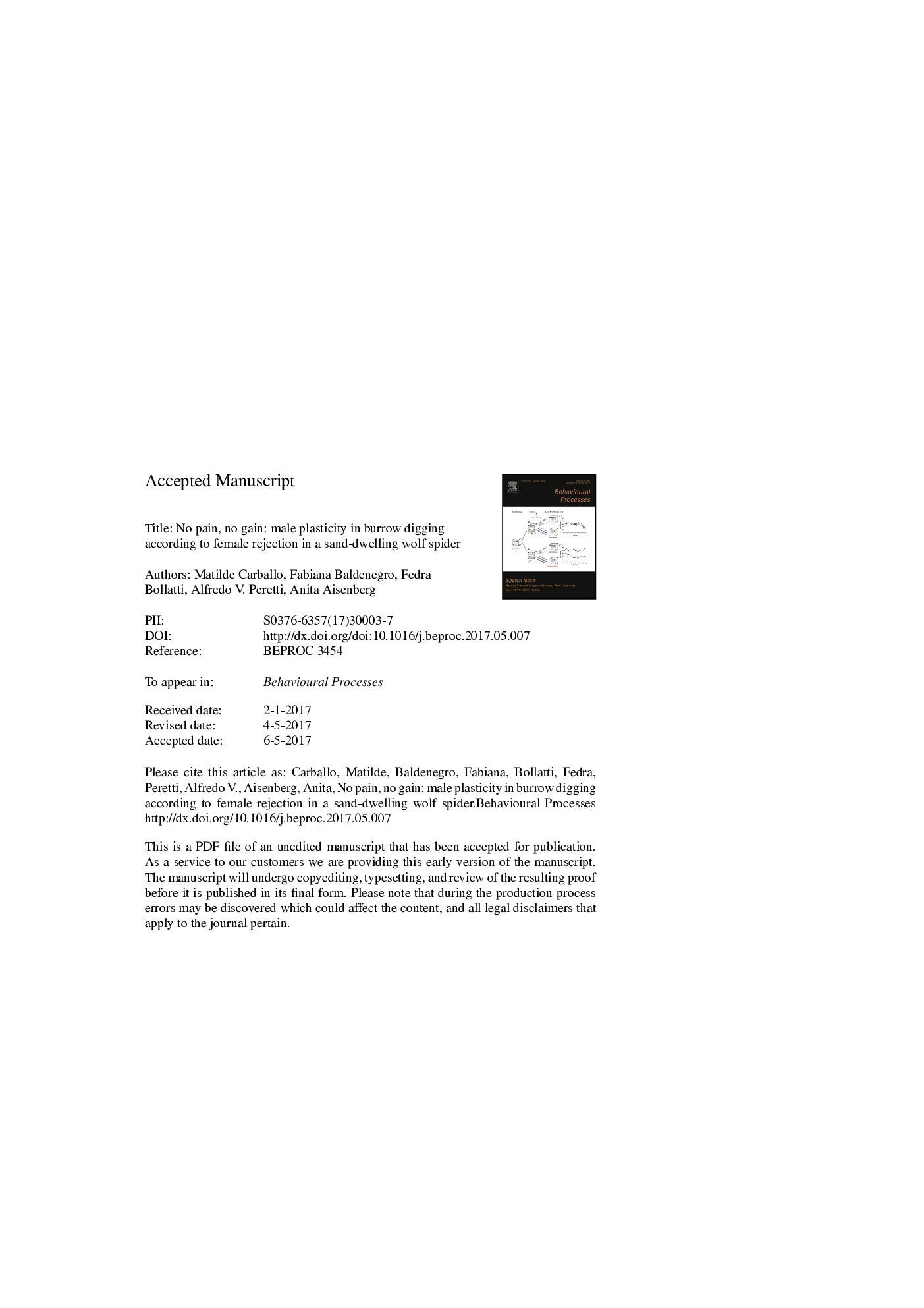| Article ID | Journal | Published Year | Pages | File Type |
|---|---|---|---|---|
| 5539788 | Behavioural Processes | 2017 | 32 Pages |
Abstract
Behavioral plasticity allows individuals to reversibly respond to short-term variations in their ecological and social environment in order to maximize their fitness. Allocosa senex is a burrow-digging spider that inhabits the sandy coasts of South America. This species shows a reversal in typical sex roles expected in spiders: females are wanderers that visit males at their burrows and initiate courtship. They prefer males with long burrows for mating, and males prefer virgin over mated females. We tested whether female sexual rejection induced males to enlarge their burrows and if female reproductive status affected males' responses. We exposed males who had constructed burrows to: a) virgin females or b) mated females, (n = 16 for each category). If female rejection occurred, we repeated the trial 48 h later with the same female. As control, we maintained a group of males without female exposure (unexposed group, n = 32). Rejected males enlarged their burrows more frequently and burrows were longer compared to unexposed males. However, frequency and length of enlargement did not differ according to female reproductive status. Males of A. senex showed plasticity in digging behavior in response to the availability of females, as a way to maximize the possibilities of future mating.
Keywords
Related Topics
Life Sciences
Agricultural and Biological Sciences
Animal Science and Zoology
Authors
Matilde Carballo, Fabiana Baldenegro, Fedra Bollatti, Alfredo V. Peretti, Anita Aisenberg,
